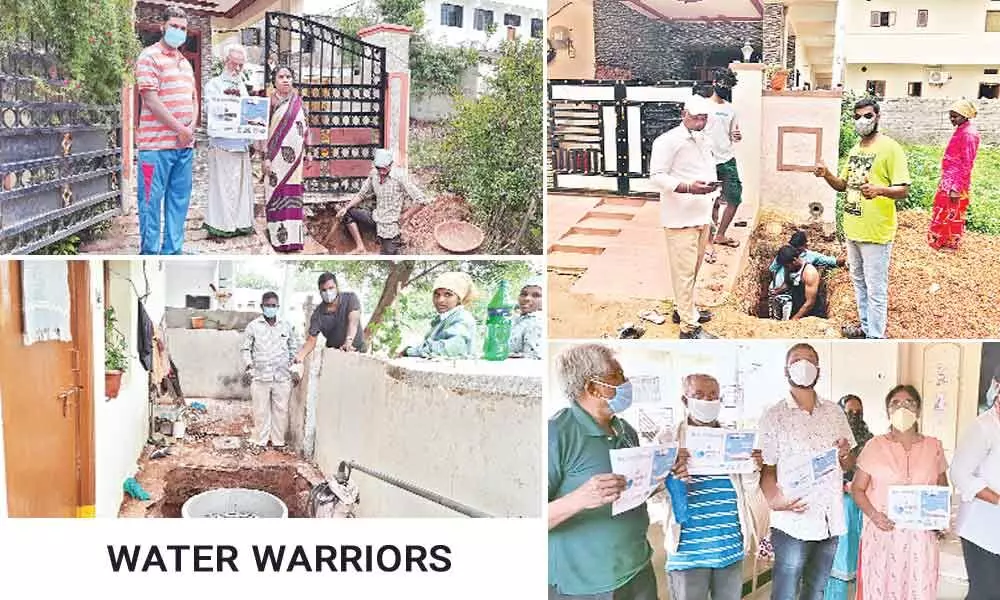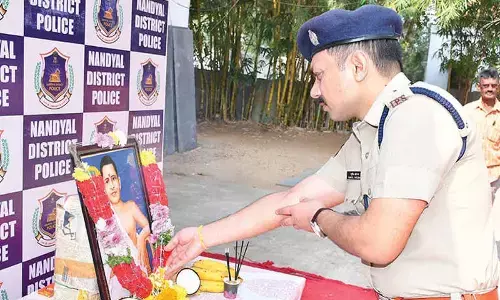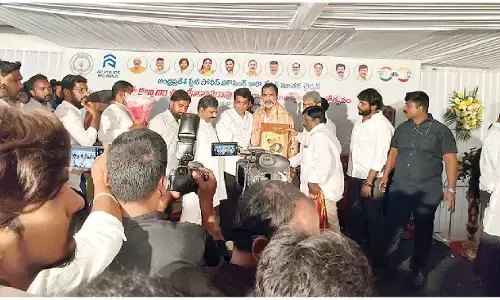Water Warriors: On the tap and for any need in Hyderabad

On the tap and for any need in Hyderabad
Abhyudaya Colony in Bandlaguda Jagir turns a role model in rainwater harvesting
Hyderabad: Given increasing concretisation of the city and consequent deep depletion of groundwater table, residents of a colony have realised the dire need to replenish the water tables and successfully took recourse to rainwater harvesting. Artificial recharge allows to augment natural infiltration of rainwater into the ground by artificial methods.
The methods suggested to recharge the ground water are pits, trenches, wells, shafts and directly diverting runoff water into the existing wells. The choice of any particular method is governed by local hydrogeology and soil conditions and ultimate use.
Growing restive over years seeing how many colonies in the city are witnessing huge demands for water tankers due to inadequate supply of water by Hyderabad Metro Water Supply and Sewerage Board (HMWSSB), the residents have dug close to 100 rainwater harvesting pits in Abhyudaya Colony in Bandlaguda Jagir, thus making their nearly self-sufficient.
"The rainwater harvesting programme has started rolling out in April in our colony. At that time the society was spending thousands of rupees per month on water tankers when they face short water supply. They we said we had enough and decided to install the RWH system. Till now the 90 pits were completed and the residents are greatly benefiting from the voluntary initiative," said a beaming M Narendar Babu, a social activist and water conservationist.
A few years ago, there were hardly 8-10 pits in the colony. Then, Babu along with Blue Hyderabad started an awareness programme on RWH benefits in Abhyudaya Colony and almost residents have evinced keen interest in them. Within no time, many started installing RWH system at their houses. Those who already installed pits have renovated them.
Narender Babu is go around colonies and explaining the need for collective conservation of water and asking them to arrange rainwater harvesting pits in colony houses. For installing the system, it costs around Rs 8,000 to Rs 10,000. The materials which used were stones of 60-80 mm, 20-40 mm, 6 mm, rings, pipes, top up etc. A space of 5x5 feet is needed with 7 feet depth and it can be installed in a day.
Then, rooftop water is collected through pipes and directed into sump or pit. A rooftop has potential to save 3 to 5 lakhs litres of water during times of average rainfall. The pit is divided into two parts, one for regular use and the other to be used as a rainwater pit.
There are several apartments and houses coming up in the area but do not have RWH system. Every apartment or an individual house should take up rainwater harvesting system in view of severe shortfall in water supply by the board, Babu adds.
'It's mandatory but only on paper'
♦ Rainwater Harvesting is mandatory for building permissions but due to lack of vigilance hundreds of apartment complexes have come up in the city without harvesting pits.
♦ In 2015-16, the Greater Hyderabad Municipal Corporation (GHMC) came out with a scheme under which the civic body bore 70% of the Rainwater Harvesting cost for individual houses as well as colonies. The scheme has fallen flat and is no longer available.
♦ There are several government buildings and complexes that still do not have RW mechanism.
♦ Nearly 20-30 per cent of water absorbed by the surface will also evaporate and the rest is wasted
♦ According to Indian Meteorological Department, water seepage into ground is less than 7 per cent
Reasons for groundwater depletion
♦ Increasing demand of ground water
♦ Withdrawing more than recharge
♦ Reduction of recharge area due to buildings, paved paths and roads
♦ Diminishing surface water bodies
♦ Uncertain rainfall
Techniques to improve groundwater
♦ Creation of recharge pits, trenches and shafts in building premises, open space, parks and along roads.
♦ Use of existing dry wells as recharge structures.
♦ Rooftop and road top rain water should be channeled into recharge structures.
♦ Protection and conservation of open areas, parks and surface water bodies.














